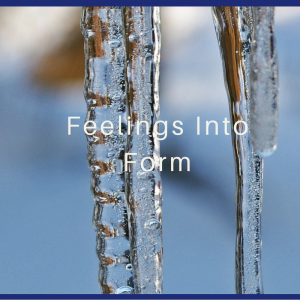Since I was about 8, I knew I was a deeply feeling person.
Watching movies like horror movies (yes, I had the unfortunate experience of watching a horror movie at 8) and sad movies I’d think about the characters for hours. Even now, if someone is being tortured, I feel like I’m being tortured. If the main heroine in the movie had a husband that left her for another woman, I’m heart-broken and feel it in my chest, aching deeply. Many times I’ve been told to suck it up, not be so sensitive and so dramatic about my feelings.
So it wasn’t a huge surprise (although I have to say a bit of a relief), when I realized the term empath actually described me more accurately.
You see, I feel other people’s feelings.
Let me say that again.
I feel other people’s feelings in my body.
Empathy is when are able to feel so deeply for another person that you can actually be in their suffering and pain and experience it, but an empath is a person that LITERALLY feels those feelings on a regular basis.
It became very obvious to me when I went into clinical practice; I’d feel all of a sudden very anxious in a patient visit, or very unprovoked anger in the middle of a seemingly benign conversation. If a person had a chest infection, I found myself very quickly unable to breathe over a minute or two. Weird right?
What became more frustrating was my awareness of this; if the person was open I could discuss how my feelings were theirs and support them…which is how I learned I could accurately feel another’s feelings as they would confirm my perceptions.
But what became more exhausting over time was actually when a person said “no, I’m fine”, either by social norms and not wanting to disclose their feelings OR that they were not aware they were feeling them at all.
And herein began what has become both a blessing and a curse for me both personally and professionally.
So when I’m with a person, and I start to feel the tell-tale signs of emotional overwhelm, grief, anxiety, anger…and I realize it’s not mine (thank you, meditation and self-awareness), I know that it’s not mine to carry. I release it from my body, which has made my body very happy, because all of that extra emotion was weighing me down. Fatigue, emotional outbursts, headaches, stomach aches…I’d end up with someone else’s emotion in me. It took me a long time to realize that mine and “other” was important to establish, and handle.
The thing is – everyone has the capacity to do this and most people do for one another. Most humans have compassion (aside from a few fairly obvious exceptions) and most of us have these experiences. We’re just not taught to include them in our active experience.
You know the ‘story’ of a broken heart in grief? It’s a real thing. The human heart can actually break and go into cardiac arrest and spasm when grief is present. So if that’s the case, why can’t other physical conditions happen with other human emotions?
They can, and so does the volume of investigation with chinese medicine over 3000 years.
Traditional Chinese medicine attributes each organ with an associated emotion – liver and anger, lungs and sadness, spleen and worry, kidneys and fear, heart and joy, and so on.
It’s fascinating because they long ago accepted that emotions can cause changes in the physical body.
It’s something so pivotal to a part of my investigation now that I can’t imagine not including it, and being that I am so empathic myself, I can confirm what I see and feel in another.
It’s real. It exists. This is where feelings become form.
The question is, what do we do about it? If emotions can cause physical pain, could some of your pains possibly be emotional?
Your turn. You tell me.